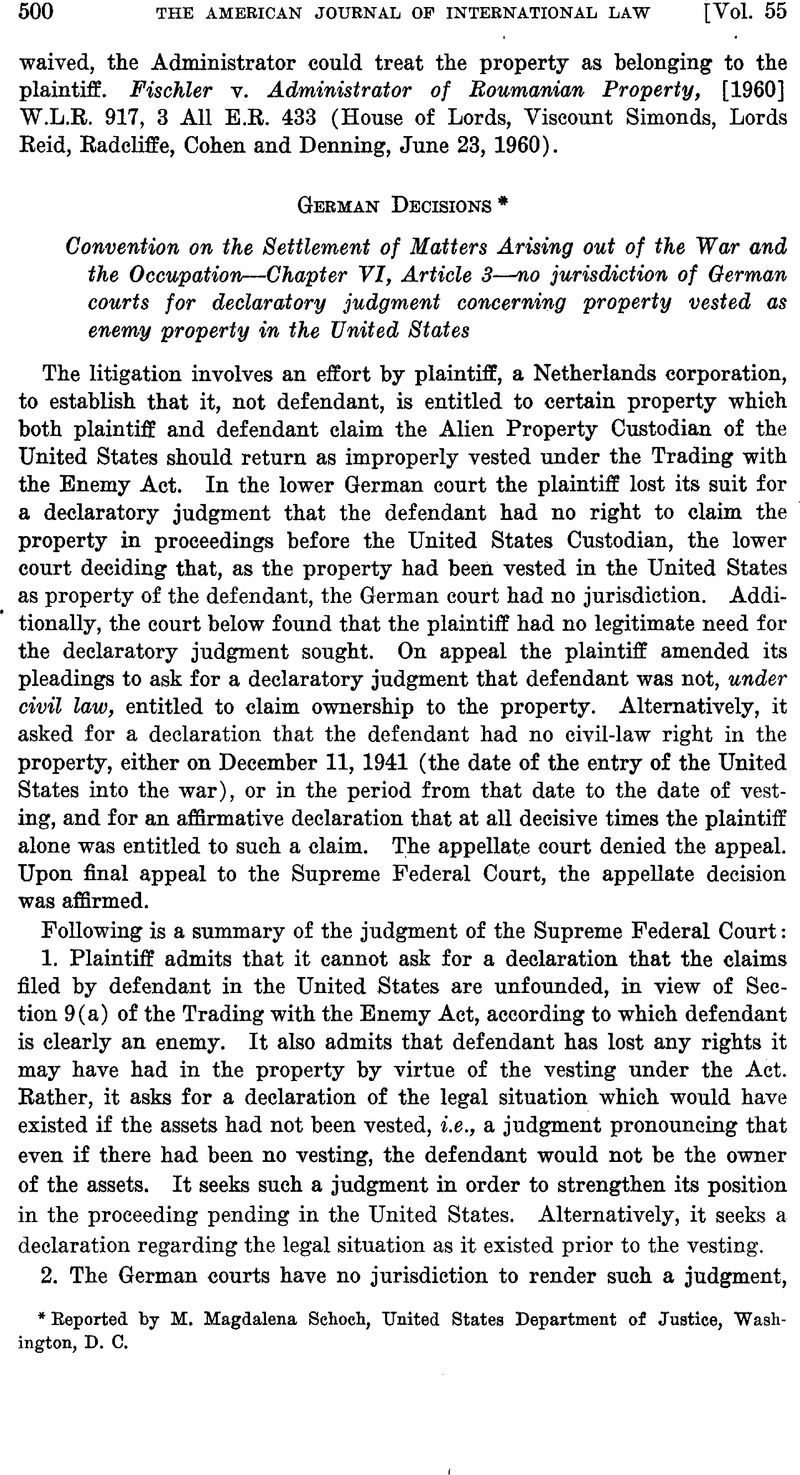No CrossRef data available.
Article contents
Abstract

- Type
- Judicial Decisions
- Information
- Copyright
- Copyright © American Society of International Law 1961
Footnotes
Reported by M. Magdalena Schoch, United States Department of Justice, Washington, D. C.
References
page 503 note 1 Art. 3 of Law No. 63 provides : “No claim or action based on or arising out of the transfer, liquidation or delivery of property to which this Law extends shall be admissible: (a) against any person who has transferred or acquired title to or possession of such property, or against such property, (b) against any international agency, any government of a foreign country, or any person acting in conformity with the instructions of such agency or government.”
page 504 note 1 (2) Everyone has the right to life and to physical inviolability. The freedom of the individual is inviolable. These rights may be interfered with only on the basis of a law.
page 504 note 2 (1) The freedom of the individual may be restricted only on the basis of a formal law and only with due regard to the forms prescribed therein. Detained persons may be subjected neither to mental nor physical ill-treatment.
(2) Only a judge is entitled to decide on the admissibility and extension of a deprivation of liberty. In the case of every such deprivation which is not based on the order of a judge, a judicial decision must be obtained without delay. The police may, on its own authority, hold no one in its own custody beyond the end of the day following the arrest. Further details are to be regulated by law.
page 504 note 3 (3) Everyone arrested or detained in accordance with the provisions of paragraph 1(c) of this Article shall be brought promptly before a judge or other officer authorized by law to exercise judicial power and shall be entitled to trial within a reasonable time or to release pending trial. Release may be conditioned by guarantees to appear for trial.
(4) Everyone who has been the victim of arrest or detention in contravention of the provisions of this Article shall have an enforceable right to compensation.
page 504 note 4 (1) Everyone charged with a criminal offense shall be presumed innocent until proved guilty according to law.
page 505 note 1 Convention for the Protection of Human Rights and Fundamental Freedoms, signed at Borne, Nov. 4, 1950 (45 A.J.I.L. Supp. 24 (1951)). Art. 13, provides: “Everyone whose rights and freedoms as set forth in this Convention are violated shall have an effective remedy before a national authority notwithstanding that the violation has been committed by persons acting in an official capacity. “
page 507 note 1 Entered into effect for the United States Jan. 1, 1949. 63 Stat. (2) 1399.
page 507 note 2 See decision of the Federal Administrative Court of the same date (13 Neue Juristische Wochenschrift 1538), which held that a sender of a telegram from Germany to England was entitled to be informed of the German official through whose fault the sending of the telegram was delayed.


